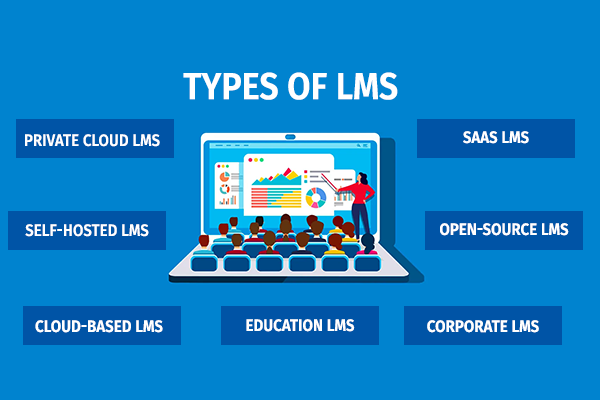The e-learning industry is growing at an unprecedented rate, making the selection of the right learning management system (LMS) crucial for businesses, educational institutions, and individuals. With the abundance of LMS options available, making an informed decision can be challenging. In this guide, we will explore key factors to consider when choosing an LMS to meet your specific needs.
Understanding What a Learning Management System (LMS) Is
A learning management system (LMS) is a software application designed to administer, document, track, and deliver educational courses or training programs. It streamlines learning processes by providing a centralized platform for educators and learners. LMS platforms come with various features such as content management, user engagement tools, reporting capabilities, and integration options, making them an essential tool for effective digital learning.
Organizations and institutions use LMS platforms for a variety of purposes, including employee training, professional development, corporate onboarding, and academic instruction. Whether you are an entrepreneur, HR professional, or educator, understanding what an LMS offers is the first step toward selecting the right one.
Key Features to Look for in an LMS
When selecting a learning management system, consider its core features to ensure it aligns with your learning objectives. Some key functionalities to look for include:
User-Friendly Interface: A simple and intuitive interface is crucial for both learners and administrators. A well-designed LMS should be easy to navigate and require minimal training.
Customization Options: A good LMS should allow customization to match branding and organizational requirements.
Course Creation and Management: An effective LMS offers robust tools for creating, managing, and updating courses seamlessly.
Assessment and Tracking Tools: The ability to assess learners’ progress through quizzes, assignments, and analytics is essential for effective learning management.
Mobile Accessibility: With the rise of mobile learning, an LMS should be responsive and compatible with different devices.
Integration Capabilities: Integration with other software, such as HR systems, CRM tools, and third-party applications, enhances efficiency and workflow.
Types of Learning Management Systems

LMS platforms vary in structure and functionality. The main types include:
Cloud-Based LMS: Hosted on the cloud, these systems are accessible from anywhere and do not require complex installation. They are ideal for businesses and educational institutions that need scalability and flexibility.
Self-Hosted LMS: These require installation on private servers, providing greater control and customization options. They are best suited for organizations that prioritize data security and system control.
Open-Source LMS: Free to use and modify, open-source LMS solutions offer flexibility but require technical expertise to customize and maintain.
Corporate LMS: Designed for business use, corporate LMS platforms focus on employee training, onboarding, and compliance training.
Academic LMS: Used by schools and universities, academic LMS platforms support classroom management, online courses, and student progress tracking.
Factors to Consider Before Choosing an LMS
Selecting the right LMS depends on various factors, including budget, organization size, and learning goals. Here are a few key considerations:
- Budget: Pricing varies significantly between LMS platforms. Some offer subscription-based pricing, while others require a one-time payment.
- Scalability: Choose an LMS that can grow with your organization’s needs.
- Support and Training: Opt for a provider that offers strong customer support and training resources.
- Security and Compliance: Ensure the LMS meets industry security standards and compliance regulations.
- User Feedback and Reviews: Checking user reviews and testimonials can provide valuable insights into an LMS’s reliability and efficiency.
Popular Learning Management Systems
If you’re searching for a well-established LMS, consider the following popular options:
- Moodle: An open-source LMS widely used in academic settings.
- TalentLMS: A cloud-based platform offering easy course creation and customization.
- Blackboard: Known for its robust learning tools and strong academic presence.
- SAP Litmos: A corporate-focused LMS designed for employee training.
- Docebo: Offers AI-powered learning solutions for businesses.
Conclusion
Choosing the right learning management system is a crucial decision that impacts learning efficiency and organizational success. By evaluating key features, system types, and budget considerations, you can select an LMS that aligns with your goals. Whether you are an educator, corporate trainer, or business owner, the right LMS can significantly enhance your training and education initiatives. Take the time to research and test different LMS platforms to find the perfect fit for your needs.
